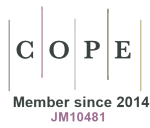Acceptability and deliverability of an auditory rhythmical cueing (ARC) training programme for use at home and outdoors to improve gait and physical activity poststroke
DOI:
https://doi.org/10.1186/s40945-021-00126-xKeywords:
Acceptability, Stroke, Gait, Exercise, Auditory rhythmical cueingAbstract
Background: Although laboratory studies demonstrate that training programmes using auditory rhythmical cueing (ARC) may improve gait post-stroke, few studies have evaluated this intervention in the home and outdoors where deployment may be more appropriate. This manuscript reports stakeholder refinement of an ARC gait and balance training programme for use at home and outdoors, and a study which assessed acceptability and deliverability of this programme. Methods: Programme design and content were refined during stakeholder workshops involving physiotherapists and stroke survivors. A two-group acceptability and deliverability study was then undertaken. Twelve patients poststroke with a gait related mobility impairment received either the ARC gait and balance training programme or the gait and balance training programme without ARC. Programme provider written notes, participant exercise and fall diaries, adverse event monitoring and feedback questionnaires captured data about deliverability, safety and acceptability of the programmes. Results: The training programme consisted of 18 sessions (six supervised, 12 self-managed) of exercises and ARC delivered by a low-cost commercially available metronome. All 12 participants completed the six supervised sessions and 10/12 completed the 12 self-managed sessions. Provider and participant session written records and feedback questionnaires confirmed programme deliverability and acceptability. Conclusion: An ARC gait and balance training programme refined by key stakeholders was feasible to deliver and acceptable to participants and providers.Downloads
Download data is not yet available.
Downloads
Published
2022-01-04
How to Cite
McCue, P., Shaw, L., Din, S. D., Hunter, H., Lord, S., Price, C. I. M., Rodgers, H., Rochester, L., & Moore, S. A. (2022). Acceptability and deliverability of an auditory rhythmical cueing (ARC) training programme for use at home and outdoors to improve gait and physical activity poststroke. Archives of Physiotherapy, 12(1). https://doi.org/10.1186/s40945-021-00126-x
Issue
Section
Research Article
License
Copyright (c) 2022 The Authors

This work is licensed under a Creative Commons Attribution-NonCommercial 4.0 International License.









